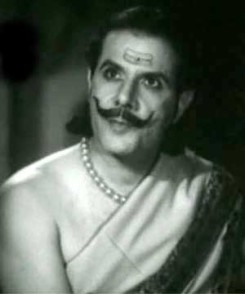Sohrab Modi
- Birthday: 02. November 1897
- Awards: Dadasaheb Phalke Award
Biography
Sohrab Modi (1897–1984) was an Indian Parsi stage and film actor, director and producer. His films include Khoon Ka Khoon (1935), a version of Shakespeare's Hamlet, Sikandar, Pukar, Prithvi Vallabh, Jhansi ki Rani, Mirza Ghalib, Jailor and Nausherwan-E-Adil (1957). His films always carried a message of strong commitment to social and national issues.
He launched Minerva Movietone in 1936. His early films at Minerva dealt with contemporary social issues such as alcoholism in Meetha Zaher (1938) and the right of Hindu women to divorce in Talaq (1938). Though the films did well, what attracted Modi was the historic genre. Minerva Movietone became famous for its trilogy of historical spectaculars that were to follow - Pukar (1939), Sikander (1941) and Prithvi Vallabh (1943), wherein Modi made the most of his gift for grandiloquence to evoke historical grandeur.
Pukar was set in the court of the Mughal Emperor Jehangir and is based on an incident, perhaps fictional, that highlights Jehangir's fair sense of justice. Many of the key scenes were staged in the magnificent courts and palaces of the Mughals, which gave the film an authenticity that studio built sets could never achieve. The charisma of its stars, Chandra Mohan and Naseem Bano, and Kamaal Amrohi's oration, with its literary flourish and innate grace, ensured the film's popularity.
Perhaps Modi's greatest film was Sikander, which immortalized Prithviraj Kapoor playing the title role. This epic film was set in 326 BC when Alexander the Great, having conquered Persia and the Kabul Valley, descends on the Indian border at Jhelum and encounters Porus (Modi), who stops the advance with his troops. Sikander's lavish mounting, huge sets, and production values equalled Hollywood's best, particularly in its rousing and spectacular battle scenes. The movie was rated by a British writer as "well up to the standard of that old masterpiece The Birth of a Nation." Its dramatic, declamatory dialogue gave both Prithviraj Kapoor and Sohrab Modi free rein to their histrionic proclivities.
